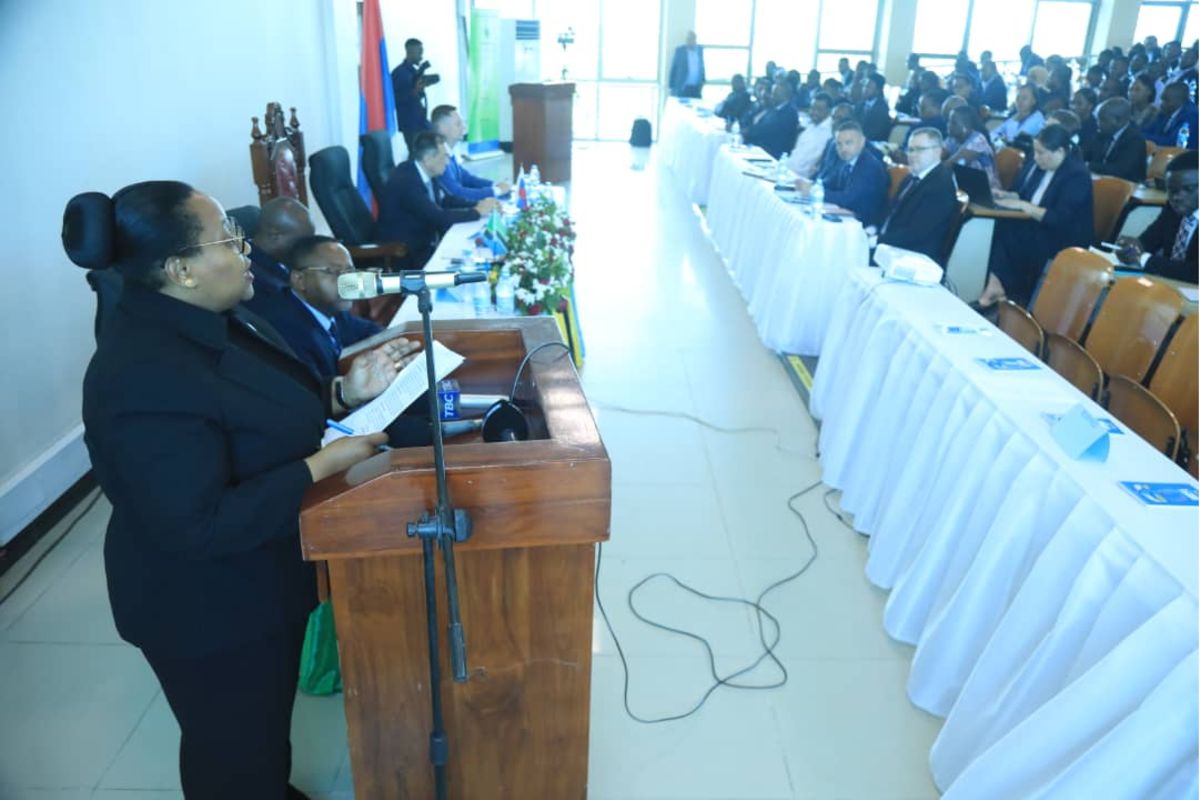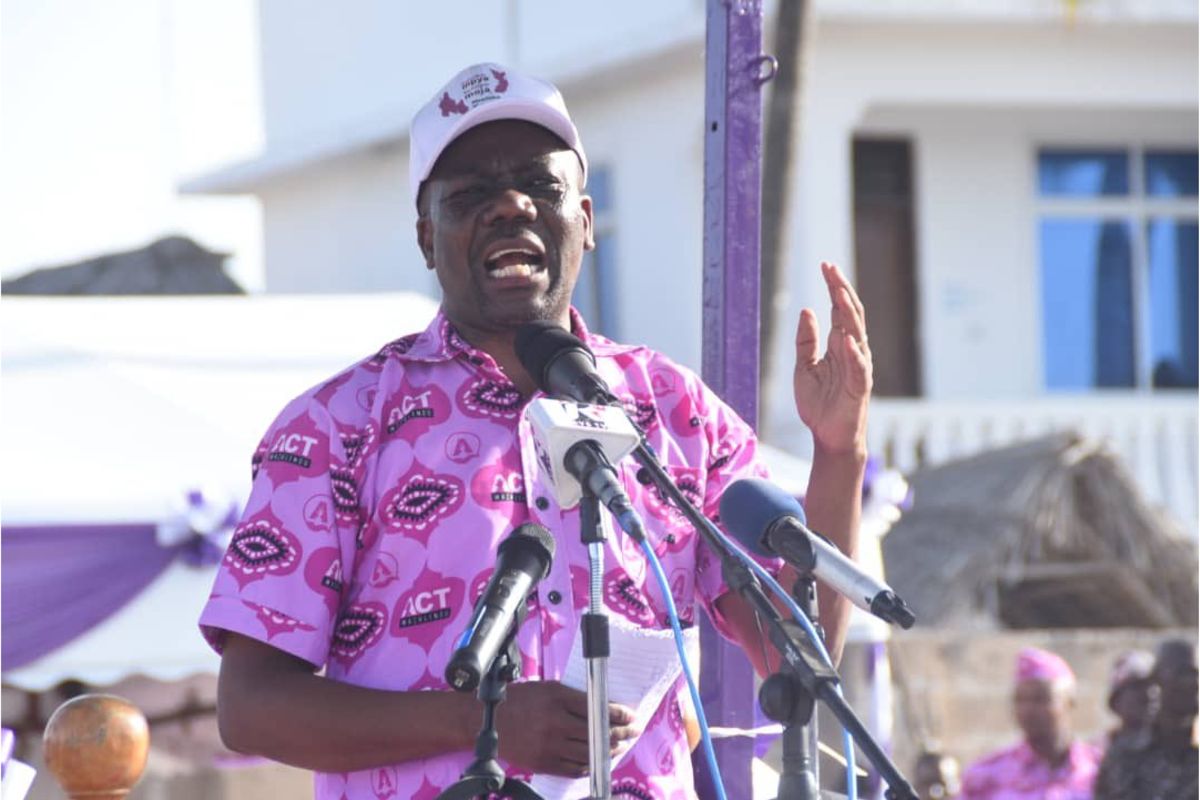Dar es Salaam. Ili kuimarisha utaalamu na mbinu za kisheria katika kukabiliana na uhalifu wa mtandao, Serikali inashirikiana na Russia kubadilishana uzoefu na elimu juu ya masuala hayo.
Katika kufanikisha hilo, wataalamu kutoka Ofisi ya Mwendesha Mashtaka Mkuu wa Russia wamewasili nchini na kutoa mafunzo kwa wanafunzi na wanataaluma ya sheria kuhusu masuala hayo.
Ushirikiano wa mataifa hayo kuhusu masuala ya kisheria ni matokeo ya ziara ya Waziri Mkuu Kassim Majaliwa na mawaziri wengine walioenda Russia Julai mwaka jana.
Katika ziara hiyo, pamoja na mambo mengine viongozi hao walisaini hati mbalimbali za makubaliano ikiwamo ya ushirikiano wa kisheria katika kukabiliana na uhalifu wa mtandao na ugaidi.
Mafunzo kuhusu masuala hayo yamefanyika jana katika ukumbi wa Taasisi ya Mafunzo ya Uanasheria kwa Vitendo (LST), jijini Dar es Salaam.
Akifungua mhadhara wa wakufunzi hao kutoka Russia, Waziri wa Katiba na Sheria, Dk Pindi Chana amesema hiyo ni hatua muhimu katika kuyafikia malengo ya dunia.
Amesema mafunzo hayo yanalenga kujenga uwezo wa utaalamu wa kisheria kwa wanataaluma hiyo waliopo nchini, ili wamudu kukabiliana na uhalifu ukiwemo wa mtandao na ugaidi.
“Mafunzo haya yanalenga kuondoa changamoto za kisheria zinazoyakabili mataifa mbalimbali duniani na kwamba, hii ni fursa ya kubadilishana uzoefu. Hili ni jambo muhimu kwa sababu mwelekeo wa dunia ni mmoja, dunia yote inapambana dhidi ya kukandamizwa kwa haki za binadamu na uhalifu,” amesema.
Amesisitiza kinachofanyika ni matokeo ya makubaliano kati ya Tanzania na Russia na kwamba, kuna maeneo mengine ya ushirikiano yatakayoongezwa.
Dk Chana alisema msingi wa mafunzo na ushirikiano huo ni kuimarisha misingi ya haki na usawa katika jamii ya Tanzania.
Awali, akihutubia mhadhara huo, Mkuu wa Taasisi ya Mafunzo ya Uanasheria kwa Vitendo (LST), Profesa Sisty Mramba alisema kunahitajika ushirikiano wa kimataifa ili kukabili ugaidi na uhalifu wa kimtandao.
“Changamoto zinazoikabili dunia kwa sasa ni ugaidi na uhalifu wa mtandao, kunahitajika ushirikiano wa mataifa mbalimbali katika kupeana ujuzi ili kukabiliana na changamoto zilizopo,” amesema Profesa Mramba.
Amesema ni muhimu kujenga uelewa wa kisheria juu ya kukabiliana na majanga ya uhalifu ukiwamo wa mtandao.
Balozi wa Russia nchini, Andrey Avetisyan alieleza kufurahishwa na hatua kubwa za kimageuzi katika mifumo ya kisheria zilizopigwa Tanzania.
Amesema anafurahishwa na mazingira rafiki na mazuri yanayowekwa na Serikali na Tanzania katika uwekezaji na biashara, huku akiwahimiza wawekezaji kutoka Russia kuwekeza nchini.
Hata hivyo, amesema ushirikiano wa Russia na Tanzania hasa katika masuala ya kisheria utajenga uelewa na mbinu bora za kukabiliana changamoto zilizopo.
Balozi Avetisyan amesema kuna umuhimu mkubwa wa ushirikiano wa kisheria kwani unawezesha kujua mifumo ya kisheria ya kila Taifa na hata kufahamu sheria zilizopo.
Alisema ushirikiano wa kisheria ni muhimu hasa kwa sasa kwa mustakabali wa uhusiano baina ya mataifa hayo.
Balozi Avetisyan alisema Russia ipo Tanzania kuendelea kufurahia ushirikiano, huku akimwalika Dk Chana kwenye Jukwaa la Kisheria la St. Peter litakalofanyika Juni, nchini humo.
Amesisitiza ushirikiano huo hautaishia hapo, utaenda mbali zaidi hadi katika kubadilishana wanafunzi wa sheria kati ya Tanzania na Russia.
Source: mwananchi.co.tz














